NJ Boating License: Essential Steps to Get Yours Easily
Boating is a popular recreational activity in New Jersey, with many residents and visitors enjoying its scenic waterways each year. One of the key components to ensuring a safe and enjoyable experience on the water is obtaining a New Jersey boating license. This license allows individuals to operate power vessels and personal watercraft on non-tidal waters within the state.
Acquiring a boating license in New Jersey involves completing a boat safety course, obtaining a boat safety certificate, and, if applicable, getting an endorsement on one's driver's license or ID card. While a boating license is not required for non-powered vessels, it's important to learn and adhere to boating safety guidelines to protect oneself and others on the water.

Key Takeaways
- A New Jersey boating license is required for operating power vessels and personal watercraft on non-tidal waters.
- Obtaining a license involves completing a safety course and receiving a boat safety certificate.
- Education and safety measures are crucial for a responsible and enjoyable boating experience.
New Jersey Boating License Overview
In New Jersey, obtaining a boating license is essential for operating various types of vessels. The process is regulated by the New Jersey State Police who ensure that boaters have the necessary knowledge and skills to safely navigate the state's waterways.
To obtain a New Jersey boating license, individuals must first enroll in an approved boating safety course and pass the required examination. Upon successful completion, they will be awarded a New Jersey Boating Safety Course Certificate. This certificate is a prerequisite for obtaining the actual boating license.
For those who are at least 16 years old and seeking an initial motorboat or jet ski license, they will need to visit a motor vehicle agency. Applicants under the age of 17 must provide a letter with parental or guardian consent. When visiting the agency, individuals should bring their New Jersey Boating Safety Course Certificate, proof of identity (6 Points of ID), and pay the $18 license fee.

Some exemptions to the boating license requirement exist, such as vessels powered by a motor less than 1 HP or a 12-volt electric motor, vessels 12 feet long or longer with less than 10 HP, and those competing in an authorized race with a permit. More information can be found in the New Jersey State Police Boating Safety Manual.
If a boater loses their Boating Safety Certificate or needs a replacement, they should contact the New Jersey State Police for assistance. Boaters can call the Marine Services Bureau for any non-emergency questions regarding their Boating Safety Certificate, Monday through Friday, from 9 am to 2 pm.
By following the necessary steps and regulations set forth by the New Jersey State Police, boaters can confidently, knowledgeably, and safely enjoy their time on the water with a valid New Jersey boating license.
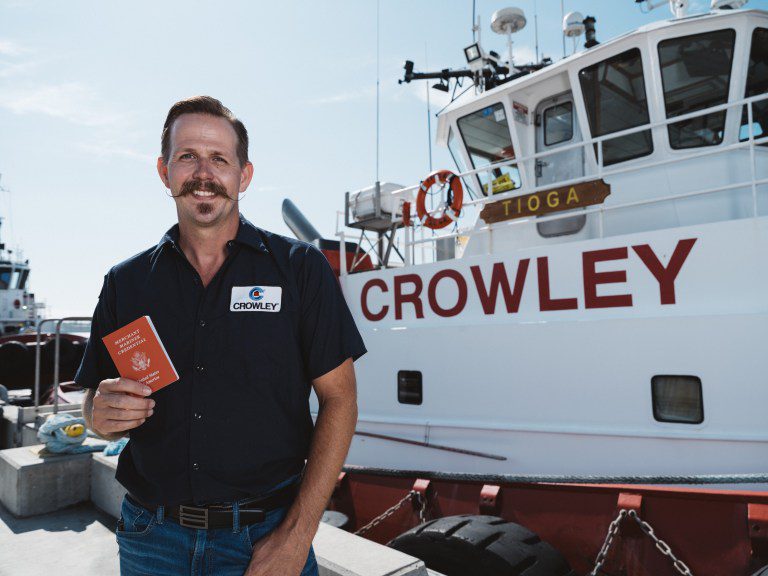
Acquiring a Boating License
Boat License Application Process
To acquire a boating license in New Jersey, applicants must be at least 16 years old and successfully complete a New Jersey Boating Safety Course. Additionally, individuals under the age of 17 need a letter of parental or guardian consent. After fulfilling these prerequisites, applicants can visit a New Jersey Motor Vehicle Commission (MVC) agency to submit their application. The boat license is an endorsement on the applicant's New Jersey Driver's License or ID card, permitting operation of a vessel on non-tidal waters.
It is important to note that a boat license is separate from a boating safety certificate, but both are required for legally operating a motorboat or Jet Ski in New Jersey. Some exemptions apply to vessels powered by a motor less than 1 HP or a 12-volt electric motor, vessels 12 feet long or longer with less than 10 HP, and authorized racing boats with permits.

Documents Required for Application
When applying for a boating license endorsement, applicants must visit an MVC agency and provide the following documents:
- New Jersey Boating Safety Course Certificate
- Six Points of ID for proof of identification, which typically includes a driver's license or ID card and documents that verify the applicant's date of birth, among other identifying details
- Payment of the $18 license fee, which can be made using various payment methods, such as MasterCard or Visa
By following these steps and submitting the necessary documents, applicants can confidently and efficiently obtain their New Jersey boating license, ensuring a safe and legally compliant experience on the water.
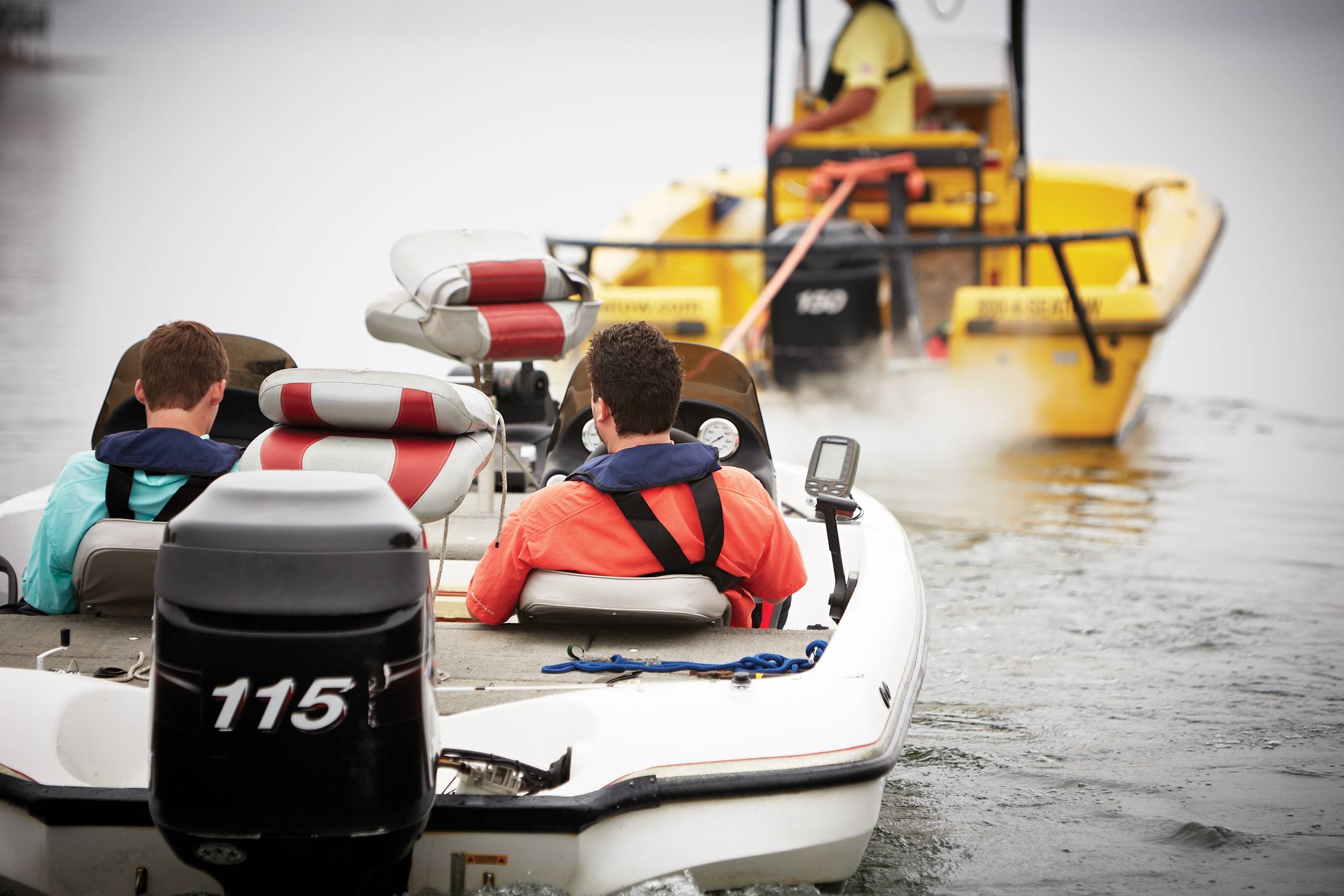
The Necessity of a Safety Certificate
A safety certificate is vital for anyone who wishes to operate a vessel on New Jersey waters. The state requires boaters to possess either a boating safety certificate issued in their home state, a New Jersey boat safety certificate, a United States Coast Guard Captain's License, or written proof of completion of a safety course approved by N.A.S.B.L.A. or one substantially similar source.
To obtain a boat safety certificate in New Jersey, one must complete a boating safety course. This course is essential as it educates boaters on important safety measures, navigation techniques, and state regulations. It is a crucial step in ensuring that power vessel and personal watercraft operators are knowledgeable and responsible while out on the water source.
Marinas and boating supply stores often provide information on boating safety courses, making it convenient for boaters to access the necessary training materials and resources. Many courses even offer online or in-person options to provide flexibility for individuals with different schedules and learning preferences source.
New Jersey also enforces rules regarding boat licenses, which differ from the boating safety certificate. For instance, those who wish to operate a power vessel or personal watercraft on non-tidal waters are required to have both a boat license and a boating safety certificate. However, non-powered vessels do not require a boat license source.
In conclusion, obtaining a safety certificate is of utmost importance for boaters in New Jersey to ensure their own safety and that of other waterway users. Proper training through a safety course and adhering to regulations are key to a safe and enjoyable boating experience in the state.

Available Boating Safety Courses
Online Boating Safety Courses
Online boating safety courses are a convenient option for obtaining a New Jersey boating license. One reputable online course provider is Boat-Ed. They offer a $39.95 course, which, upon successful completion, meets the requirements to obtain the required boater education card. Online courses can be completed at your own pace, allowing for flexibility in scheduling.
It is essential to note that some online courses may require a proctored exam, which must be taken in person. Ensure you check the specific requirements of the online course provider before enrollment.
In-Person Boating Safety Courses
For those who prefer in-person instruction, several course providers offer boating safety courses in various locations throughout New Jersey. The New Jersey State Police provides a list of approved course providers by county.
One example of an in-person course provider is Captain Jack's Boating School LLC, where the minimum student age is 13 years old. These in-person courses must be at least 8 hours in length and are taught by approved boating safety instructors.
Another option for in-person courses is Boat Safe US. Their courses are approved by the National Association of State Boating Law Administrators and recognized by the U.S. Coast Guard. Similar to other in-person courses, they require a minimum of 8 hours of formal instruction from a certified instructor.
Lastly, the Safety First Boating School offers an 8-hour course in one day or two 3 1/2 hour instructor-led sessions with an additional one hour of required home study. Upon successfully completing the 60-question exam, participants will receive their New Jersey Boating Safety Certificate.
Choosing the right boating safety course ultimately depends on personal preference, whether online or in person, and the most convenient location for the participant.
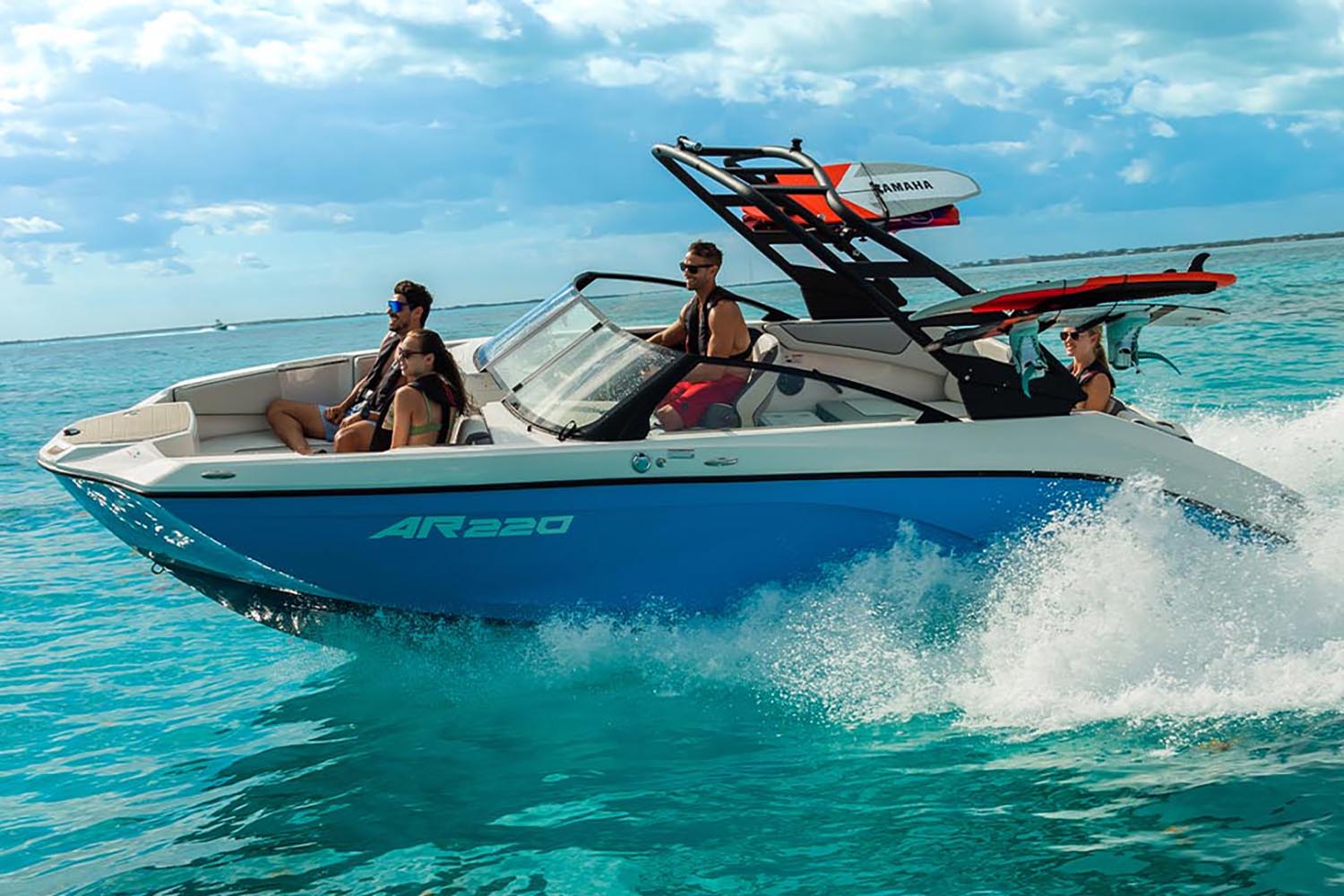
Navigating Non-Tidal and Tidal Waters
In New Jersey, boating enthusiasts are required to follow specific rules and regulations when navigating both non-tidal and tidal waters. Non-tidal waters refer to lakes, rivers, and other bodies of water that do not experience tidal changes, while tidal waters are those that are influenced by the daily tides, such as the ocean and some bays.
Anyone operating a power motorboat on tidal waters must first complete a boating safety course approved by the New Jersey State Police (NJSP) Marine Services Bureau. Upon successful completion, boaters will receive a New Jersey Boating Safety Course Certificate. This certificate is necessary for legally operating motorboats on tidal waters in the state.
There are specific exemptions for non-tidal boat licenses in New Jersey. Boaters are exempt if their vessel is powered by a motor less than 1 HP or a 12-volt electric motor, if the vessel is 12 feet long or longer with less than 10 HP, or if competing in an authorized race with a permit issued by the Division of State Police in the Department of Law & Public Safety.
When navigating these waters, it's essential to abide by the Navigational Rules and the Code of Federal Regulations, which can be purchased at a boat supply store or through a boating catalog. In addition to these standards, local laws and ordinances govern waterways in New Jersey, so it's crucial to consult local authorities for specific information.
The United States Coast Guard plays a significant role in enforcing laws and ensuring the safety of boaters on all navigable waters, including both tidal and non-tidal environments. The USCG collaborates with the NJSP Marine Services Bureau to support the boating safety program, helping to reduce the risk of loss of life, injury, and property damage related to recreational boating activity.
In summary, when navigating non-tidal and tidal waters in New Jersey, it's crucial to adhere to state and federal regulations, follow safety guidelines, and obtain necessary certifications. By doing so, boaters can ensure a safe and enjoyable experience on the water.
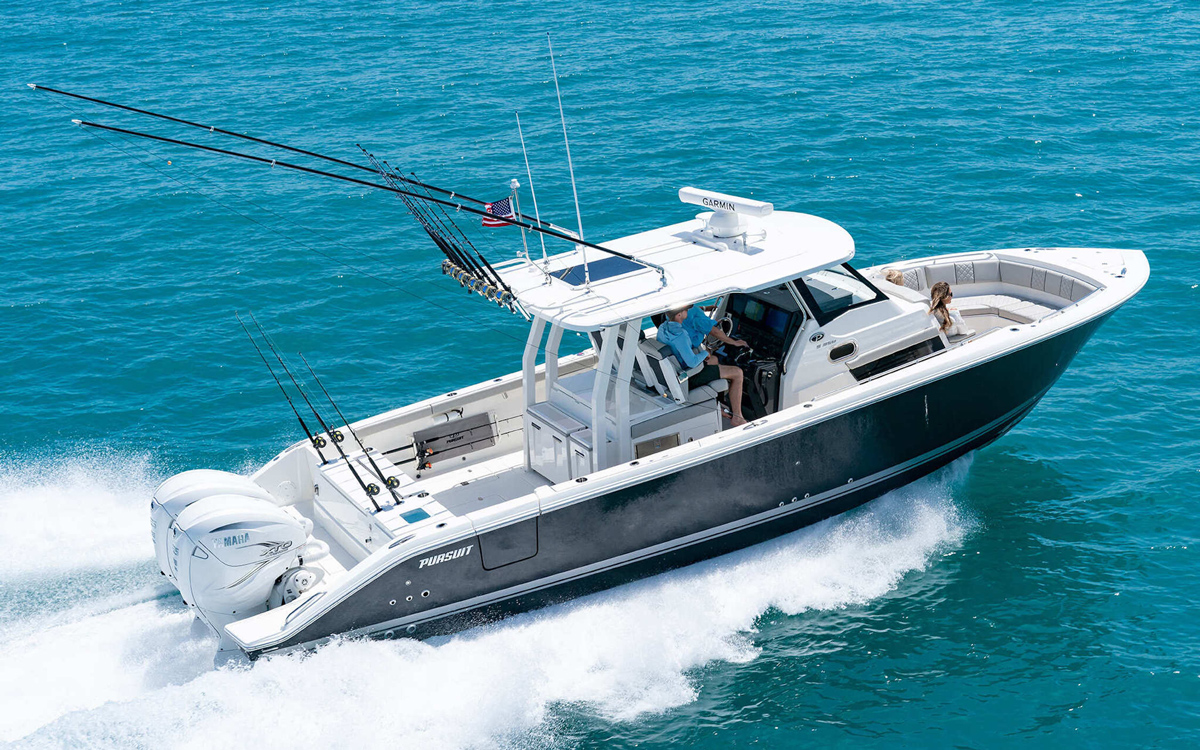
Understanding Power Vessels
Power vessels, also known as motorized vessels, are any types of boats or watercraft propelled by engines. They can vary in size, type, and purpose, from personal watercraft (PWC) such as jet skis to larger recreational and commercial boats with powerful engines.
In New Jersey, individuals wishing to operate a power vessel need to obtain a valid New Jersey Boating Safety Certificate as a proof of their boating safety knowledge. This certificate allows them to operate a power vessel on non-tidal waters, meaning waterways that do not rise and fall with the tides, within the state.
Operating a PWC, commonly referred to as a jet ski license, falls under the same requirements as any other power vessels. Therefore, a New Jersey Boating Safety Certificate is also necessary for PWC operators.
The Motor Vehicle Commission (MVC) is responsible for handling matters related to the registration of power vessels, boat licenses, and titles. Titled boats and power vessels of any length must be registered if they are to be used on waterways.
To obtain a power vessel license or register your vessel, you must visit a motor vehicle agency in New Jersey. The requirements include providing proof of ownership, Social Security number, acceptable proofs of age and identification, and completing the form BA51 (boat registration form).
It is important to note that there are no exemptions to New Jersey age requirements for operating a power vessel. Moreover, non-tidal boat licenses are not required for vessels powered solely by electric motors or vessels that are 12 feet long or longer with less than 10 horsepower.
By adhering to the regulations set forth by the New Jersey State Police and the Motor Vehicle Commission, operators of power vessels can safely enjoy their time on the water while minimizing the risk of accidents and property damage.

Boating Supply Stores and Services
New Jersey offers a variety of boating supply stores and services to cater to the needs of boating enthusiasts. These establishments provide essential boating supplies, equipment, and services to ensure a safe and enjoyable experience on the water.
Marinas are the primary locations where boaters can find boat storage, fueling stations, and docking facilities. These facilities often feature boating supply stores that sell marine-related equipment, accessories, and essential items. You can easily locate marinas in New Jersey by conducting a quick search on the internet or contacting the local authorities for more information.
Boating supply stores, commonly known as chandleries, stock a broad range of products such as life jackets, navigation equipment, and maintenance supplies. Many of these stores also offer online shopping options for added convenience. To find a boating supply store near you, consider using an internet search engine and filtering the results based on your location.
Customer support services can be quickly reached through phone numbers and email. Most marinas and boating supply stores provide their contact information on their websites, making it convenient for customers to reach out and ask for assistance. It's essential to keep the contact details of your preferred boating supply store handy to ensure smooth communication when in need.
In summary, marinas, boating supply stores, and customer support services are readily available in New Jersey. By utilizing the internet, phone numbers, and email, boaters can easily find the resources they need for a successful boating adventure.

Safety Measures and Precautions
When embarking on a boating adventure in New Jersey, it is crucial to prioritize safety measures and precautions. This will ensure the well-being of all individuals involved and can significantly reduce the risk of accidents and injuries. Here are some steps to help enhance safety while on the water.
First and foremost, a personal flotation device (PFD) must be worn by each person on board the watercraft. The New Jersey Boating Safety Manual states that there should be a U.S. Coast Guard-approved PFD for each passenger. This not only pertains to life jackets but also includes throwable flotation devices, which can be thrown to help a person in distress.
The PFD should be appropriate for the individual's weight and fit comfortably. For effectiveness, the life jacket must be securely fastened and not worn loosely. It is advisable to choose a PFD with bright colors, which can be easily spotted in the event of an emergency. If possible, opt for a life jacket with reflective features that enhance visibility.
Furthermore, it is essential to remember the weight limitations of the boat. Overloading the boat can impact its stability and might increase the chances of capsizing or swamping. Boaters should follow the manufacturer's guidelines and avoid exceeding the boat's capacity, considering both passengers and gear.
Another aspect of boating safety in New Jersey is obtaining a boating safety certificate. It is required for those operating a motorized vessel on New Jersey waterways. This certification ensures that boaters have finished a state-approved boating safety course, which provides crucial information about rules, regulations, and practices that help create a safer boating environment.
Lastly, communication plays a vital role in ensuring safety while on New Jersey waters. Before setting out on a trip, boaters should inform a trusted person ashore about their planned route, expected arrival time, and duration of the trip. This way, in case of an unforeseen event, authorities can be notified and necessary actions can be taken promptly.
By following these safety measures and precautions, boaters in New Jersey can ensure a safe and enjoyable experience on the water.
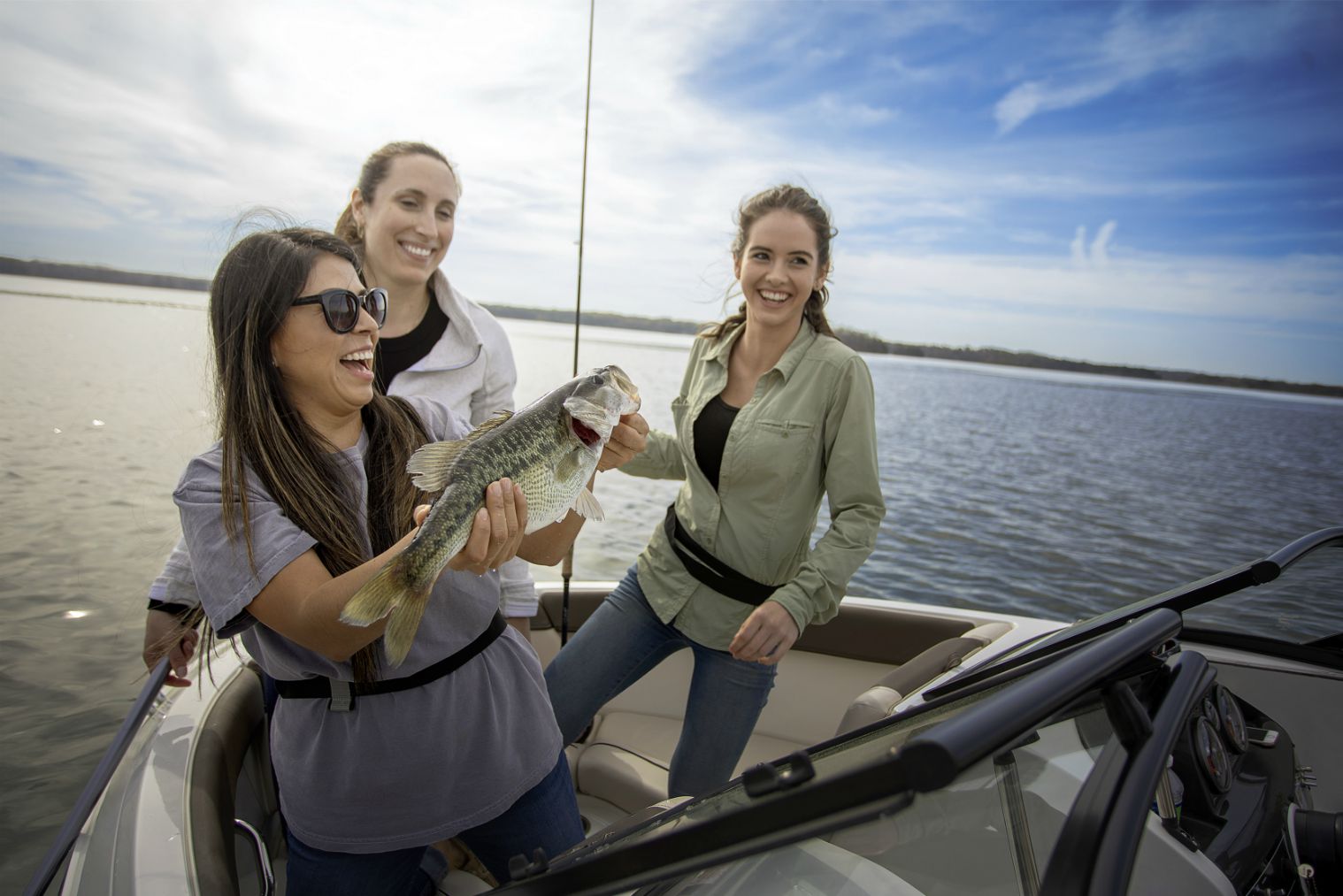
The Role of Insurance in Boating
Boat Insurance
Boat insurance plays a significant role in protecting boat owners and operators from various risks associated with boating in New Jersey. It is important for boat owners to understand the various aspects of boat insurance and select a policy that best fits their needs.
A typical boat insurance policy may cover an array of situations, such as bodily injury and property damage, which can occur in accidents involving their vessels. Policies may also provide guest passenger liability protection, ensuring that any guest operating the boat is covered in case of an accident.
One crucial aspect to consider is the coverage for medical payments. In the event of an accident, a boat insurance policy may help cover the medical expenses of the insured party and their passengers.
Additionally, boat insurance policies can offer protection against theft. Storing boats during the winter months can expose them to risks like theft and vandalism. A comprehensive insurance policy, as explained by Progressive, covers the cost to replace or repair your boat in such events.
Boat owners should also look into coverage for their specialized equipment, such as fishing gear or navigation devices like Wavve Boating maps and apps. Some insurers offer the option to customize the policy to include coverage for this special equipment.
In summary, boat insurance is a vital component of responsible boating in New Jersey, covering a wide range of potential risks. Boat owners should carefully assess their needs and choose an insurance policy that best suits their requirements.

Special Cases and Exemptions
In the state of New Jersey, there are specific exemptions and special cases when it comes to obtaining a boating license. It is essential to be aware of these situations, as they can impact the requirements for operating watercraft in the state.
Regarding non-motorized vessels, a boat license is not required for their operation. This includes canoes, kayaks, and other manually propelled boats like rowboats, racing shells, and similar watercraft. Additionally, exemptions apply to vessels with motors under 1 horsepower, such as those using a 12-volt electric motor, or boats 12 feet long or longer with less than 10 horsepower engine.
While participating in authorized competitions, some vessels may qualify for exemptions. For instance, racing vessels with the appropriate permits can operate without a license during the events exclusively.
Furthermore, specific devices like inflatable rafts, surfboards, and other water recreational equipment are typically exempt from requiring a license in New Jersey. Operating a small tender or dinghy used to transport passengers from a larger vessel to shore also does not require an additional license, as long as the state's laws and regulations are met.
It's essential to be aware that foreign vessels and U.S. public vessels are subject to different requirements and regulations; operators must adhere to the specific laws and guidelines of their jurisdiction. In general, these vessels may not need to adhere to New Jersey's licensing requirements, but it is recommended to consult with the state's authorities or international treaties when applicable.

Frequently Asked Questions
How do I replace a lost NJ boating license?
If you have lost your New Jersey boating safety certificate, the Marine Services Bureau cannot replace the certificate over the phone. All requests for replacement must be emailed or sent through the United States Postal Service.
What are the requirements for the 2023 NJ Boating Safety course?
For any power motorboat operation on tidal waters in New Jersey, you must successfully complete a boating safety course approved by the New Jersey State Police (NJSP). To receive a New Jersey Boating Safety Course Certificate, visit the NJSP Marine Service Bureau website for full details on the requirements and approval process.
Where can I find a boating safety course near me in NJ?
To find an approved boating safety course near you in New Jersey, browse the list of authorized providers on the New Jersey State Police Marine Services website. You will find both online and in-person course options to suit your preference and schedule.
What topics are covered in the NJ boating license study guide?
The New Jersey boating safety course covers a range of topics, such as boat operation, navigation, legal requirements, emergencies, safety practices, and weather conditions. The course aims to teach participants the necessary knowledge and skills to operate a boat safely and responsibly.
How long is the NJ boating license test and how many questions are there?
The specifics of the NJ boating license test, such as the number of questions and duration, can vary depending on the course provider. However, most tests usually consist of around 60 questions, and participants must achieve a passing score of 80% or higher to successfully complete the test and earn their boating safety certificate.
Do NJ boating licenses expire?
New Jersey Boating Safety Certificates do not have an expiration date. Once you have successfully completed the required boating safety course and received your certificate, it is valid for life.
Charlie is Editor-in-Chief of Sea Magazine